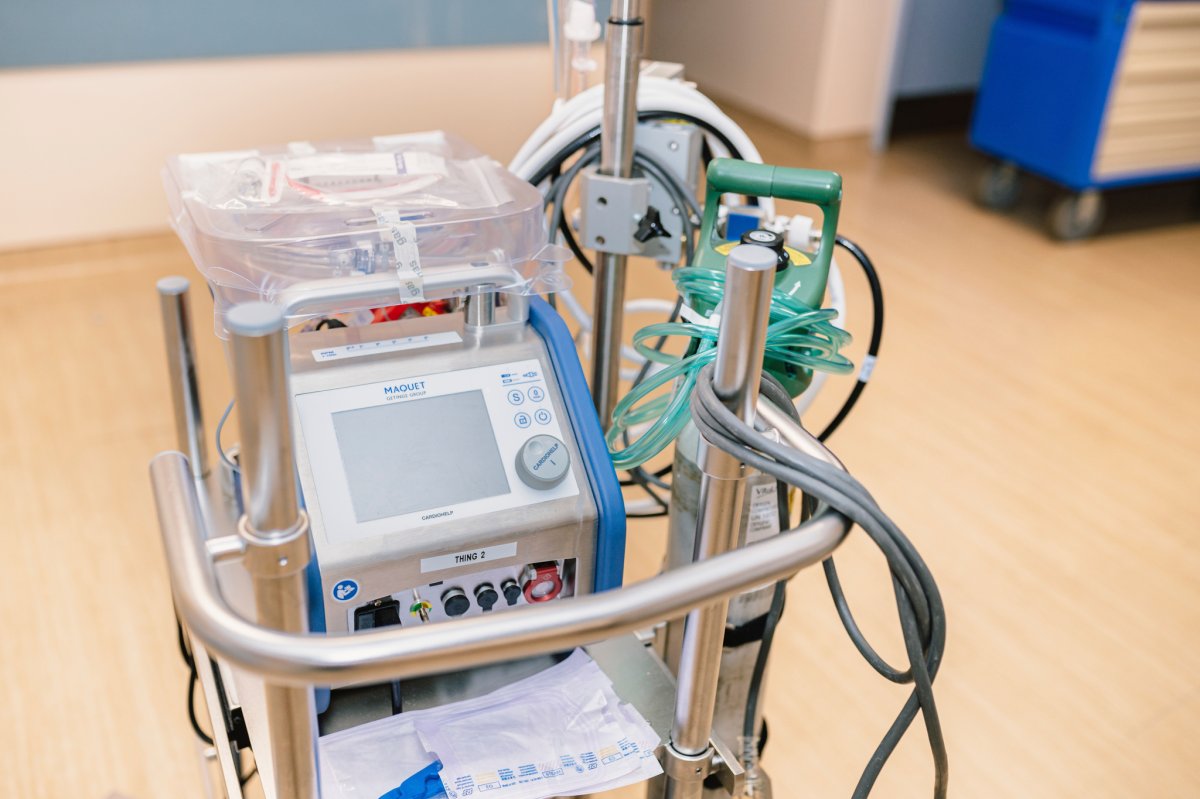Hamilton’s top hospital network says it’s recently needed help from out-of-town specialists to complete heart-related surgeries amid a local shortage of perfusionists — skilled health workers that operate critical circulation equipment.

Hamilton Health Sciences (HHS) says a lack of the skilled workers has equated to reductions in a number of cardiac procedures.
Vice-president of surgery Leslie Gauthier told 900 CHML’s Good Morning Hamilton that of the estimated 1,500 cardiac surgical cases the outlet is expected to do over a year, HHS has been falling short of that number by about 200 cases.
“There is a national shortage of perfusionists, a provincial shortage … and then local at HHS, we also are experiencing a shortage,” said Gauthier.
“So it is an issue across the country.”
She says the occupation is key to run a cardiac surgical operating room, a task that temporarily replaces a patient’s circulatory and respiratory functions during difficult medical procedures.
That includes ECMO treatment — or extracorporeal membrane oxygenation — a form of life support that uses a pump to circulate blood through a machine that replaces the work of someone’s lungs and, in some cases, their heart.
“Right now for HHS, we’re working with the province to ensure any patient who needs ECMO will receive that care at the right center,” she said.
“It might be initiating the therapy at HHS and (then) transfer the patient to another center that has more capacity.”
Gauthier insists city hospitals are continuing to maintain full access for scheduled care and emergency cardiac surgery despite having to seek help from nearby health regions and local perfusionists working during their holidays.
Currently, HHS has four full-time perfusionists as of early April and another three part-timers that have been pulling in full-time shifts. That’s down from the 16 the network had two years ago.
A spokesperson for the union representing the trade says recent incentives, like upping wages for out-of-town specialists, haven’t had the effect they hoped for since neighbouring markets have also increased inducements to mitigate similar shortages.
Chair of the hospital professionals for the Ontario Public Service Employees Union (OPSEU) Sara Labelle says locums in the field are coming from across Ontario, and even Canada, depending on the compensation hospitals are willing to pay.
Facilities in need have been shelling out for travel, lodging and a stipend – compensation for not receiving benefits and pensions since they’re not a part of the hospital’s regular staff.
“So it’s the equivalent of about $121 an hour,” Labelle told Global News.
“Whereas they’re paying the existing staff that work at HHS, at the top end of the grid … $84 an hour.”
Labelle says that disparity is problematic since the local specialists perceive locums are being treated “better than” existing staff.
“And people can write their own ticket, right? It’s not just HHS that’s paying locums,” Labelle revealed.
“You have London Health Sciences paying recruitment, retention, bonuses, adding on $10 more an hour, (and) Toronto that’s paying anywhere from $12 to $15 more an hour.”
Ontario hospitals and OPSEU are pro-actively lobbying the Ontario government to produce more perfusionists via upticks in admissions to learning facilities and more schools themselves.
Just one school in Ontario offers complete training for perfusionists, the Michener Institute in Toronto.
“There’s one in B.C. and one in Montreal, so we’re campaigning to try and get more people through those programs at the local level,” Gauthier explained.
HHS is also exploring the possibility of recruiting internationally trained professionals as well.
The Ford government has made some commitments recently to train more workers via tuition-aid programs for students enrolling in health-care curriculums.
However, much of the funding so far appears to be directed to those looking at careers in nursing, paramedics and medical laboratory technology.
Labelle says there are a limited number of institutions “churning out” professionals like perfusionists and clinical genetics technologists whose training typically commands larger tuition commitments.
“We have to offer money to train more people, open up more seats, pay them to take the schooling and the training,” said Labelle.
“They shouldn’t be coming out of school with 10, 50, or $60,000 worth of debt.”









Comments